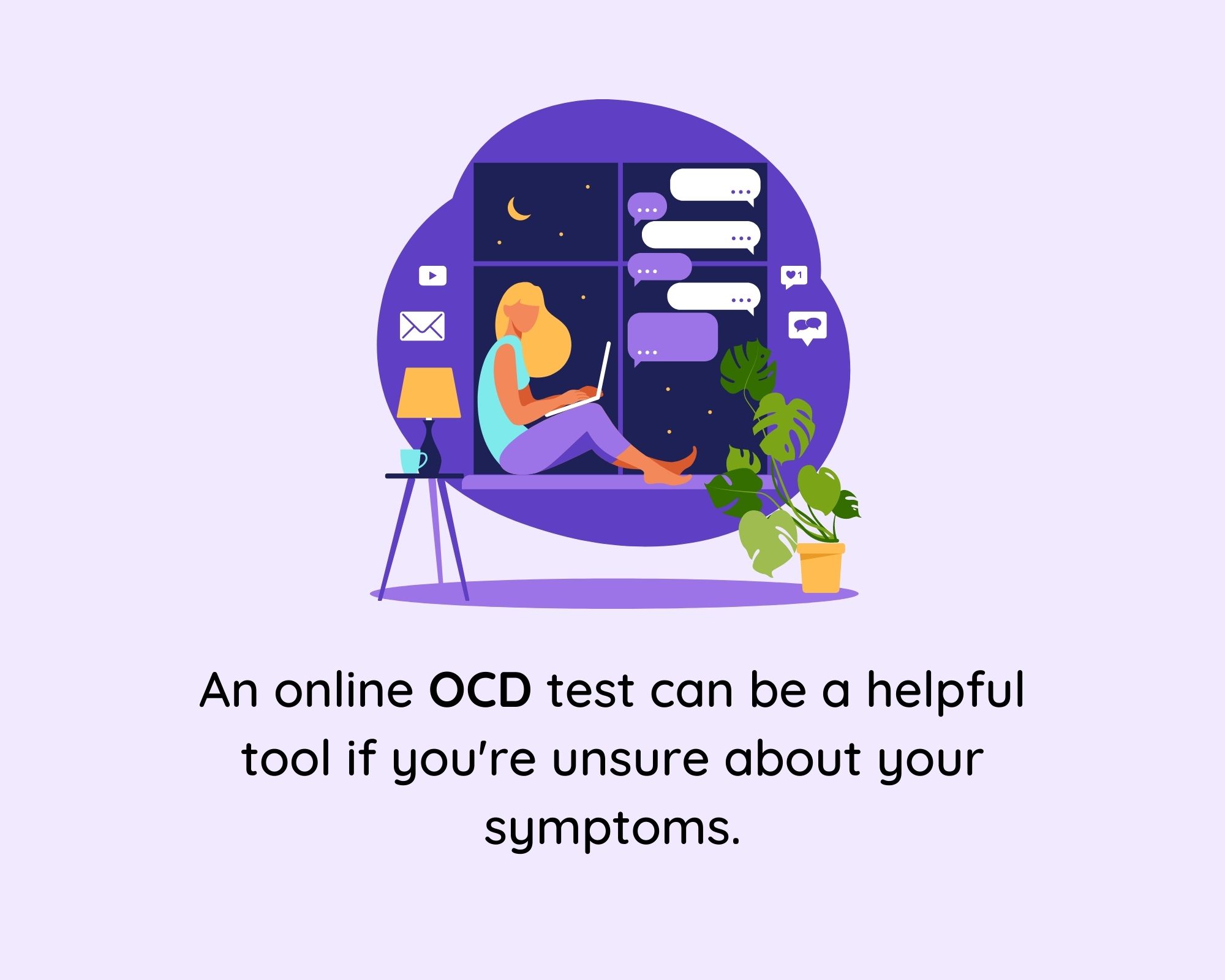5 reasons to do an OCD test now!
What is obsessive-compulsive disorder?
OCD is a mental disorder characterized by recurrent, unwanted thoughts (obsessions) and irrational, excessive urges to do certain behaviors (compulsions).
How common is OCD?

It's not clear how many people have OCD, but it's estimated that 2 to 3 percent of the U.S. population has it. OCD may be more common in men than women. Many studies suggest that OCD symptoms usually first appear when a person is between 11 and 12 years old. But people of all ages can have the disorder, including children as young as 5 years old.

The cause of OCD is unknown, but it's believed that both genetics and environment play a role.
5 reasons to do an OCD test
Here are five reasons to do an OCD test:
1. You're experiencing some of the common symptoms of OCD.
2. You want to find out more about OCD and how it might affect you.
3. You're planning to see a doctor and want to learn more about OCD first.
4. You want support and encouragement to seek treatment.
5. You want to do something proactive to help manage your OCD symptoms.
No matter why you're considering doing an OCD test, it's helpful to know more about the disorder.
The five most common obsessive-compulsive disorder symptoms are:
1. Unwanted and intrusive thoughts
2. Obsessing cleanliness or contamination
3. Having to perform rituals or routines compulsively
4. Being excessively worried about things that could happen in the future

5. Feeling like you have to control your thoughts and feelings
If you're experiencing one or more of these symptoms, you might have OCD. You can learn more about the signs and symptoms of obsessive-compulsive disorder with our free online quiz.
How to find a free online OCD test?
There are many ways to find a free online OCD test. You can start by doing a Google search for "free online OCD test." This will bring up a variety of options, including some that are offered by reputable organizations such as the National Institute of Mental Health (NIMH) and Mayo Clinic.
You can also find free online OCD tests through mental health organizations, such as the Anxiety and Depression Association of America (ADAA) or OCD Europe.
When looking for a free online OCD test, be sure to check the website's privacy policy to make sure your information will be protected.
How accurate are free online OCD tests?
There is no one answer to this question since there are many different types of free online OCD tests. Some test for just OCD, while others test for additional mental health conditions, such as depression.
Some tests ask you to enter your symptoms and are scored based on how many of the symptoms you report. Other tests ask you to rate your symptoms using a checklist.
Some free online OCD tests are more accurate than others. It's important to remember that these tests are not meant to replace a diagnosis from a mental health professional. They can, however, be a helpful tool to help you decide if you should see a doctor.
Can an OCD test help me?
An online OCD test can be a helpful tool if you're unsure about your symptoms. It may help make an appointment with a doctor more informed.

However, it's important to remember that OCD is a very serious disorder and should not be taken lightly. If you're concerned about any of your symptoms, you should speak with a doctor as soon as possible.
Mental health disorders: How is OCD diagnosed?
Many experts believe that OCD is often missed or misdiagnosed because it's not well known and can be similar to other anxiety disorders.
In some cases, a person may have OCD and another anxiety disorder at the same time. For example, a person might have both OCD and social anxiety disorder.
It's not always easy to diagnose OCD, and it often takes time and effort to get an accurate diagnosis.
To be diagnosed with OCD, you need to have symptoms for at least two weeks. Your symptoms also must be severe enough that they take up a lot of your time and cause you distress.
Talk to your mental health professional
Your doctor will likely ask you questions about your symptoms and how they've been affecting your life. He or she may also do a physical exam and order blood tests to rule out other possible causes of your symptoms.
If your doctor thinks you might have OCD, he or she may refer you to a mental health professional, such as a psychiatrist or psychologist, for an evaluation. You may also be asked to see a mental health professional on your own.
An evaluation usually involves talking about your thoughts, feelings, and behavior patterns. You may also be asked to complete some mental health tests.
Your mental health professional will use the information from your evaluation to decide if you have OCD and, if so, what type of OCD you have.
















